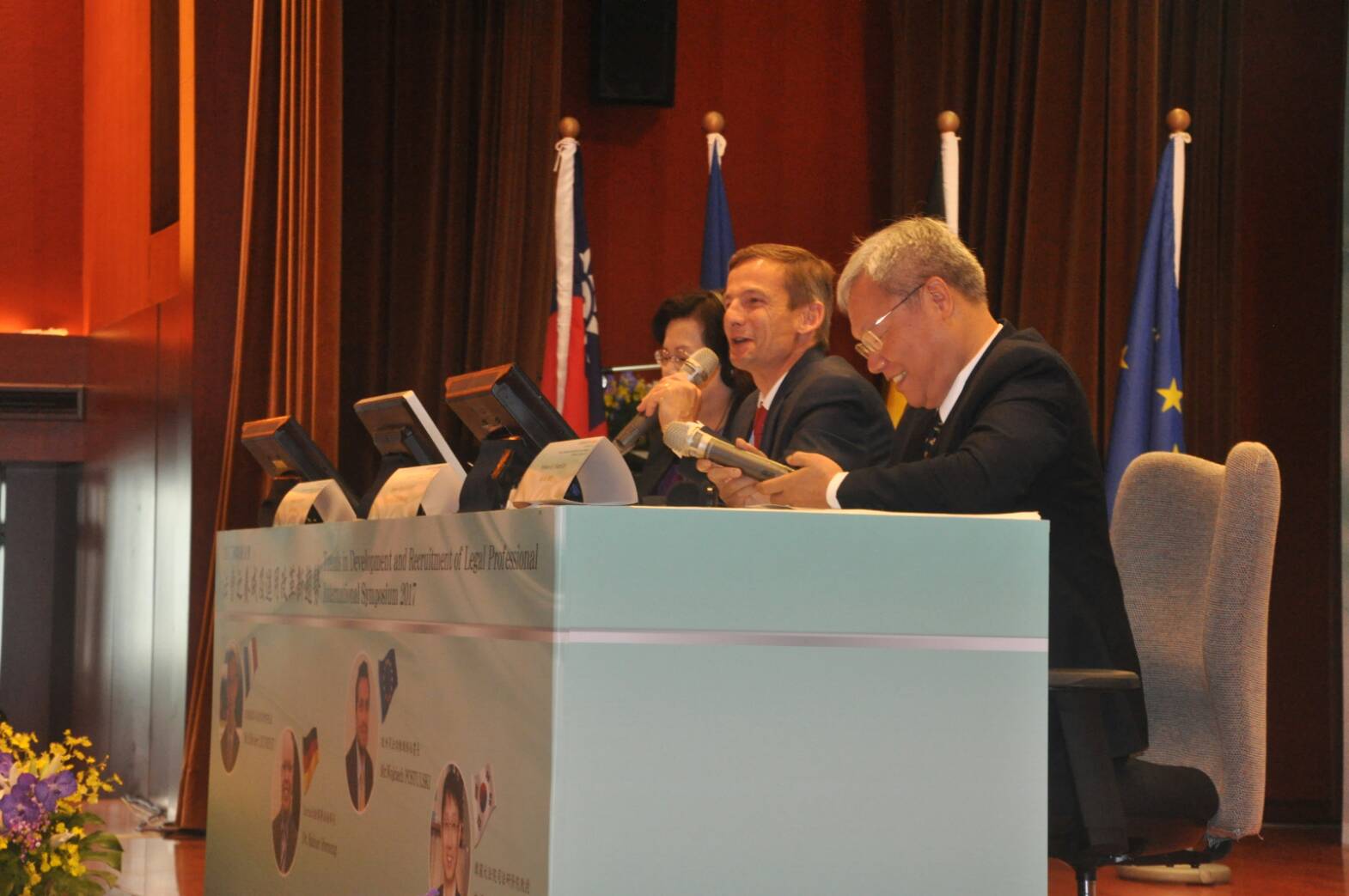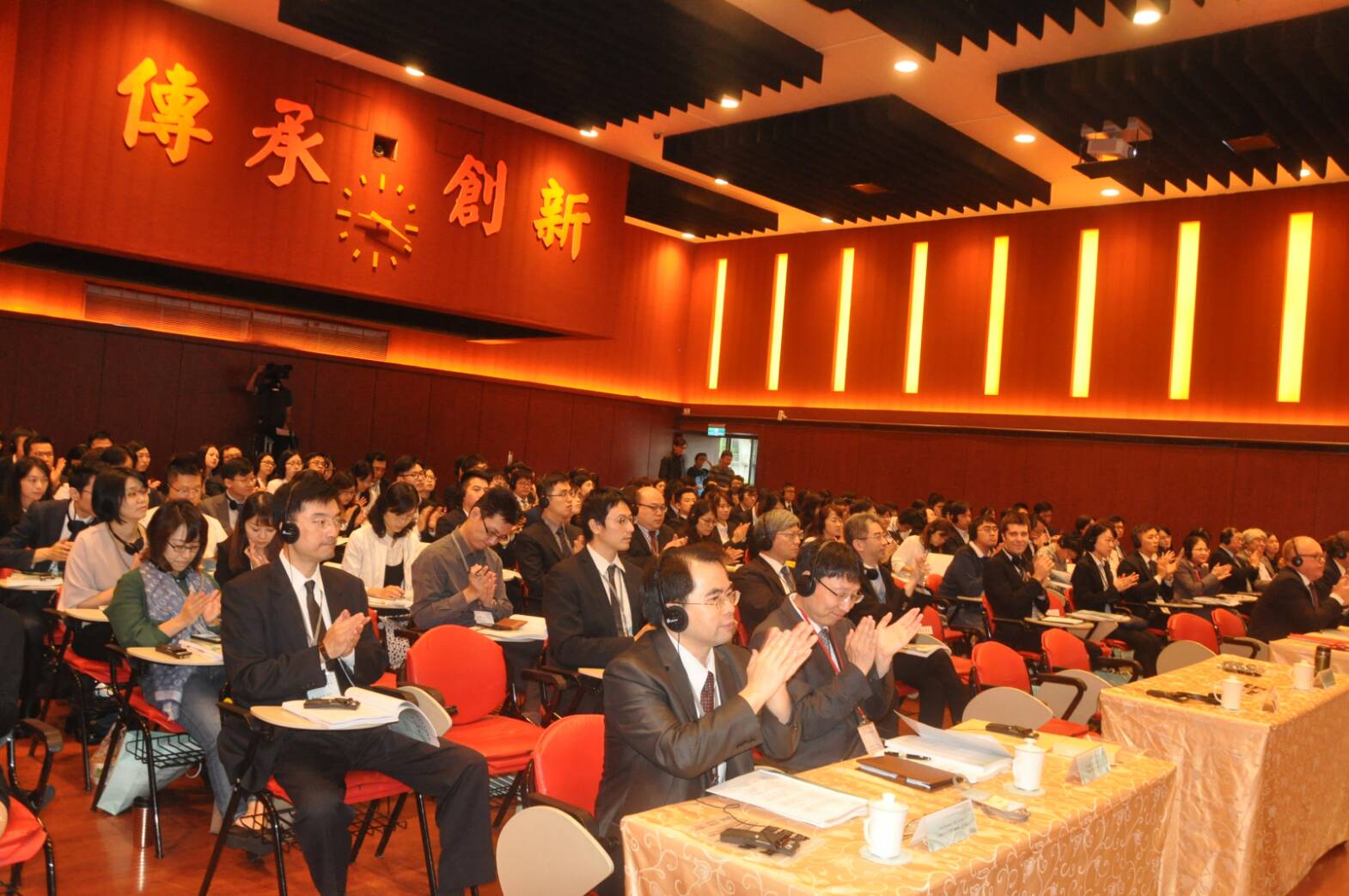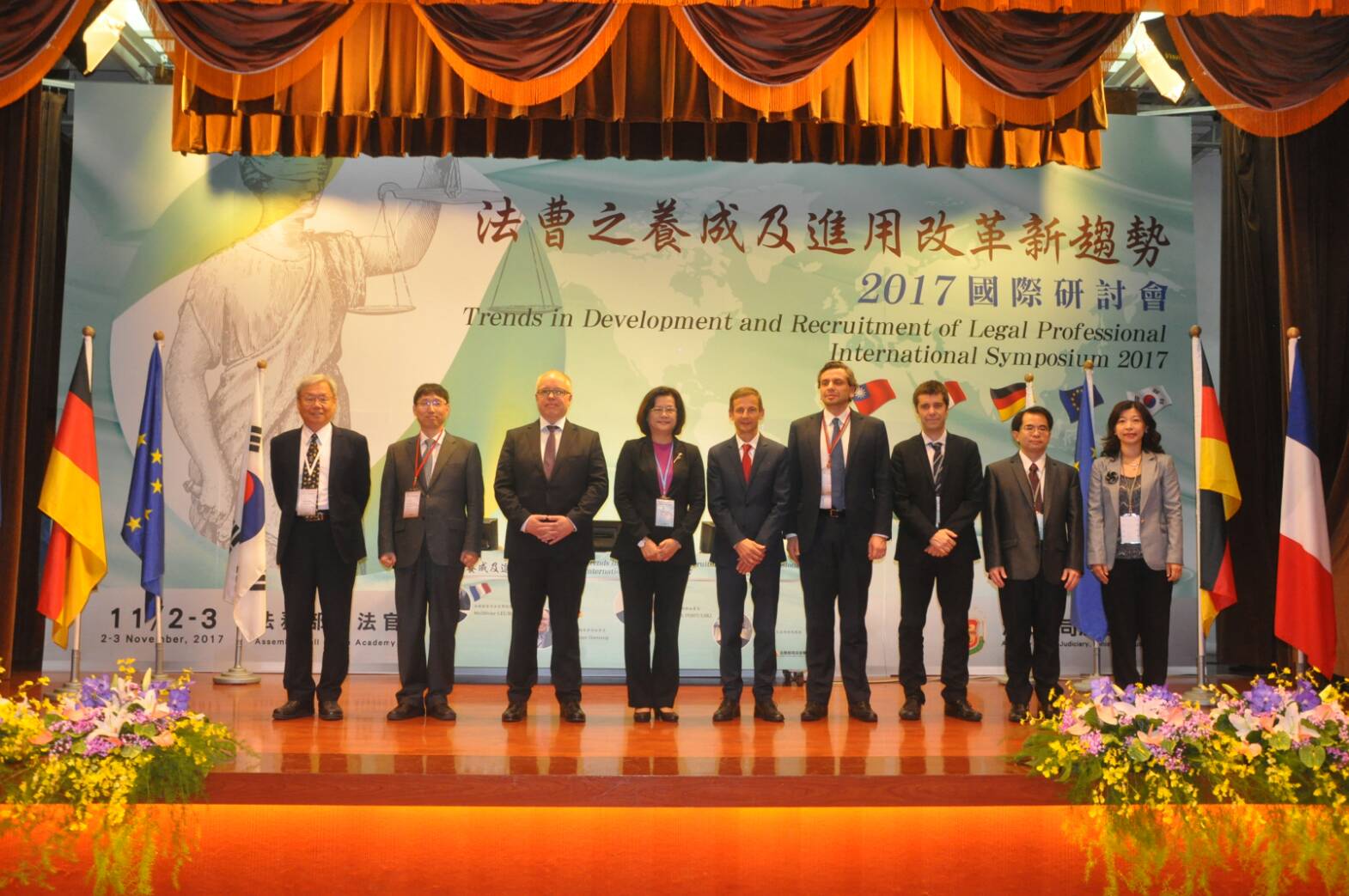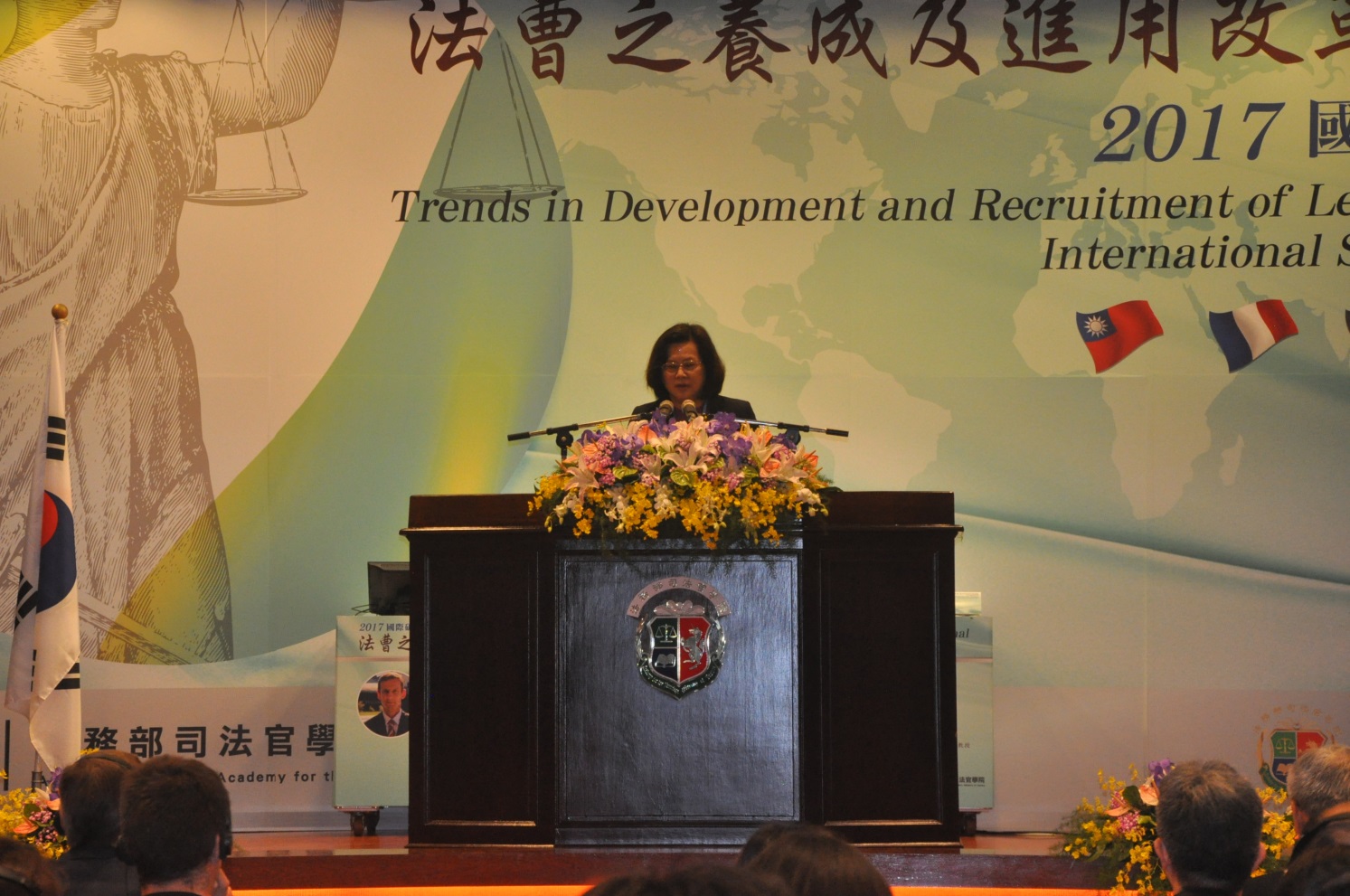2017/11/2-3 The “2017 International Symposium on Trends in Development and Recruitment of Legal Professional” held by the Academy to learn from the judicial education experiences of other nations yielded fruitful results
- Publication Date:
- Last updated:2020-02-11
- View count:1383


The Academy held the “2017 International Symposium on Trends in Development and Recruitment of Legal Professional” on November 2 and 3, 2017. Speakers to the symposium included Olivier Leurent, Director of the French National School for the Judiciary (ENM), Dr. Rainer Hornung, Deputy Chief Prosecutor of the Lörrach Prosecution Office, Mr. Wojciech Postulski, Secretary General of the European Judicial Training Network (EJTN) and Professor Rhee Young Hwan of the Judicial Research and Training Institute, the Supreme Court of Korea. Moderators to the symposium included Chair Professor Su Yong-qin, former Vice President of the Judicial Yuan, Huang Rui-ming, Justice of Constitutional Court, Judicial Yuan; Chen Ming-tang, Political Deputy Minister of the Ministry of Justice and Prosecutor General Yan Da-he. The two-day symposium facilitated the exchange and sharing of the experiences on the training of judicial personnel among France, Germany, Korea and the European Union and sparked lively and fruitful discussions. ENM Director Leurent was the speaker of the first session during the symposium. Presenting on the theme of the guiding principles of judicial training in France, Director Leurent not only introduced ENM features but also provided detailed insight into their recent effort in promoting diverse judicial recruitment as well as the changes and challenges in their pre-job training. Dr. Hornung, Deputy Chief Prosecutor of the Lörrach Prosecution Office and former Director of the German Judicial Academy, served as the speaker of the second session. He elaborated on the topic of the evaluation and assessment of the successof judicial training, offering details to note and challenges faced for evaluation and assessment to serve as a reference point for future training. Incumbent EJTN Secretary General Mr. Postulski, the speaker of the third session, shared unreservedly the philosophy and practice of EU judicial training. He introduced not only their experience and methodology towards judicial education, but also the role, training content, past results and future objectives of EJTN as a network and platform for EU judicial training providers. Professor Rhee of the Judicial Research and Training Institute, the Supreme Court of Korea was the speaker of the fourth session. He shared the experience of the Institute to shift its main functions to the on-the-job training of judges and education of lawyer-turned-judges as a result of a change in the Korean examination system and the Institute’s experience to transition by exploring new frontiers. Administrative Deputy Minister Zhang Dou-hui of the Ministry of Justice joined the symposium on the second day and hosted the closing ceremony. Deputy Minister Zhang said that the international symposium gathered seasoned practitioners, experts and scholars from various countries to discuss their experiences in the education of judicial and legal professionals. The results would serve as an important reference point for Taiwan’s reform and help point out an adequate reform direction for Taiwan.



